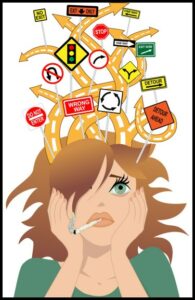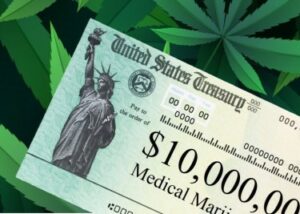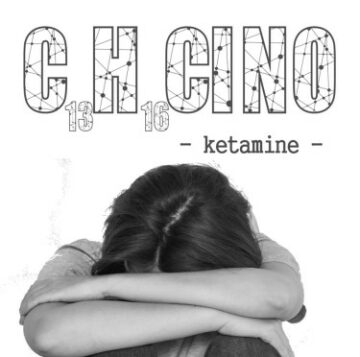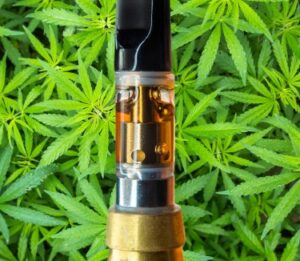
Is the DEA still worth it? A Cost Benefit Analysis
In 1971, Richard Nixon signed the Controlled Substances Act into law, forever changing the landscape of drug regulation in the United States. This act didn't just introduce a new set of rules regarding the use, manufacture, and distribution of certain substances; it also birthed the Drug Enforcement Administration (DEA), a body designated as the 'judge, jury, and executioner' of these newly established laws. With a stroke of a pen, a war on drugs was officially declared, and the DEA was enlisted as its chief warrior.
The DEA's role was clear from the onset – to safeguard Americans from what was perceived as the scourge of drugs. Tasked with enforcing the Controlled Substances Act, this agency was given extensive power and authority to regulate drug use in the country. This included not just law enforcement duties but also the power to classify drugs, a role that placed them at the intersection of public health, politics, and law.
Fast forward several decades, and the DEA's position has only solidified. A recent interaction with Congress highlighted this. Congressmen, recognizing the evolving perspective on cannabis, recommended the DEA consider descheduling the substance, a move that aligns with growing public sentiment and scientific understanding of cannabis. However, the DEA's response was telling. They asserted their "final authority" in drug classification matters, a stance that underscores their autonomy and the centralized power structure they operate within.
'Abolish The DEA': Julie Holland, M.D., a psychiatrist, MDMA and cannabis researcher and medical advisor to the Multidisciplinary Association for Psychedelic Studies (MAPS), let her feelings be known about the recent decisions by the DEA.
“This will be the third time, if I’m not mistaken, that there will have been a recommendation to the DEA to make cannabis schedule 3. Twice they have refused. If they do it again, I will say it again: Abolish the DEA,” Holland wrote in a tweet.
This interaction raises crucial questions about the role and effectiveness of the DEA. Are they operating in the best interests of public health and safety, or are their actions reflective of outdated, hardline policies? In a world where the understanding of substances like cannabis is rapidly evolving, does the DEA's stance hinder or help the cause of public health and justice?
It's time to critically assess the DEA's track record. Have they truly safeguarded Americans from the dangers of drugs, or have their actions contributed to other societal harms? As we delve into this article, we will conduct a thorough performance review of the DEA since the inception of the Controlled Substances Act. The goal is to determine whether their approach has been effective or if it's time to rethink and possibly dismantle this powerful agency.
Since its inception in 1971, the Drug Enforcement Administration (DEA) has been at the forefront of the United States' war on drugs. However, an examination of drug trends over the past decades, using DEA's own statistics and independent studies, reveals a concerning picture: despite the agency's efforts, drug consumption, manufacturing, and dealing have not only persisted but, in many cases, increased.
One of the most telling indicators of the rise in drug availability is the DEA's own data on drug seizures. Over the years, the quantities of drugs seized have grown exponentially. According to a comprehensive report by the National Institute on Drug Abuse, there has been a significant increase in the production and distribution of various controlled substances, including heroin, cocaine, and methamphetamine. This surge in seizures doesn't necessarily point to the DEA's effectiveness; instead, it suggests that the manufacturing and distribution of these substances have increased to levels so high that even enhanced enforcement efforts can only make a dent.
This increase in drug availability under the DEA's watch correlates with the emergence of several drug epidemics. The crack epidemic of the 1980s and the ongoing opioid crisis are prime examples. These crises didn't just represent a failure to stem the flow of drugs; they also exposed the inadequacies in addressing the root causes of drug abuse and the socio-economic factors that drive it.
Furthermore, the DEA's approach often appears to be inconsistent and unbalanced. While significant resources have been expended in combating street-level drug dealing and targeting individual users, the same level of scrutiny and enforcement has not been consistently applied to pharmaceutical companies. These companies have played a significant role in the opioid epidemic through aggressive marketing and distribution of painkillers, much of which was done legally and under the DEA's purview.
A stark example of the DEA's misplaced priorities is its approach to cannabis. Despite a growing body of research indicating the medical benefits of marijuana and a shift in public opinion favoring its legalization, the DEA has continued to classify it as a Schedule I drug — the same category as heroin and LSD, reserved for substances with no currently accepted medical use and a high potential for abuse. Now, with psychedelic research well under way, even LSD and other hallucinogens in Schedule I is not accurate anymore.This classification has not only hindered research into the medical applications of cannabis but also led to the criminalization of individuals for possession and cultivation of a plant that many states have now legalized, either for medical or recreational use.
The DEA's focus on punitive measures rather than harm reduction and prevention has also been questioned. Critics argue that the criminalization of drug use has led to overcrowded prisons, disproportionately affecting minority communities, without substantially reducing drug use or addiction rates.
The evidence suggests that the DEA has failed to significantly impact drug consumption and manufacturing. The rise in drug availability, the emergence of drug epidemics under their watch, and the inconsistent enforcement policies highlight the need for a reassessment of the DEA's role and strategies in drug control. It raises the question: is it time to consider alternative approaches that prioritize public health, education, and rehabilitation over criminalization and punitive enforcement?
Rooted in the philosophy of prohibition, a concept that has repeatedly proven unsustainable and detrimental, the DEA continues to cling to outdated policies that not only fail to address the complexities of drug use and abuse but also actively harm communities and erode civil liberties.
Prohibition, as a policy, has a notorious history, with its most famous failure being the 1920s alcohol ban in the United States. This era was marked by a rise in organized crime, corruption, and a general disregard for the law. Despite these glaring issues, the DEA fails to recognize prohibition's inherent flaws. Instead, they persist with a similar approach to controlled substances, creating a parallel to the past's failures.
The DEA's unwavering commitment to prohibition is not rooted in public health or safety but rather in self-preservation and a desire to maintain power. The agency has become a self-sustaining entity, benefiting from the very prohibition that fuels its existence. This cycle of enforcement and punishment has created a lucrative industry for the DEA, marked by significant budgets and expansive authority.
The impact of the DEA's policies extends far beyond their intended scope, affecting communities and individuals in profound and often irreversible ways. The War on Drugs, spearheaded by the DEA, has disproportionately targeted minority communities, contributing to a cycle of poverty, criminalization, and disenfranchisement. This targeted enforcement has led to the mass incarceration of people of color, tearing families apart and exacerbating social inequalities.
Moreover, the DEA's unilateral decision-making process poses a significant threat to the democratic principles upon which the United States was founded. The agency operates with little to no public oversight or participation, making decisions that affect millions without their input. This centralized power contradicts the ideals of democracy and transparency, leading to policies that often do not reflect the will or best interests of the people.
Continuing to fund and support the DEA means upholding the legacy of Harry Anslinger, a notoriously racist bureaucrat who played a key role in shaping America's drug policy. Anslinger's influence was marked by racial prejudice, power mongering, and deception, setting the stage for the punitive and discriminatory policies the DEA enforces today. By sustaining the DEA, we inadvertently endorse these outdated and harmful ideologies.
The DEA represents an archaic and harmful approach to drug policy, one that fails to adapt to modern understanding and societal needs. If we believe in the sanctity of the United States and its democratic principles, it is imperative to recognize the DEA as a relic of a bygone era, an agency that perpetuates the oppressive tactics of its predecessors. To truly liberate the people and uphold the values of justice and equality, it is necessary to exorcise the DEA and its antiquated, harmful policies. Only then can we begin to forge a path towards a more humane, effective, and just approach to drug regulation and control.
After more than half a century of stringent drug regulation, it's evident that the war on drugs has been won, not by law enforcement agencies like the DEA, but by the drugs themselves. The Controlled Substances Act, which has been the cornerstone of this protracted battle, has not only failed to curb drug use and trafficking but has also exacerbated societal ills and infringed on individual liberties. The time has come for the United States, and indeed the world, to radically rethink its approach to drug regulation.
The DEA, despite its self-proclaimed final authority in drug classification, cannot continue to dictate an outdated and ineffective policy. The CSA and similar documents across the globe need to be abolished or profoundly reformed. We must acknowledge and respect the principle that individuals have the liberty to make choices about their own bodies, provided they do not harm others. This approach aligns with the core values of freedom and personal autonomy that are central to democratic societies.
A new paradigm for drug regulation should be adopted, one that prioritizes public health, education, and harm reduction over criminalization and punishment. Such a system would not only respect individual freedoms but also address the root causes of drug abuse, offering a more compassionate and effective solution to a challenge that has long plagued our society. The time for change is now; let's embrace a future that upholds liberty, promotes well-being, and acknowledges the lessons of the past.
THE DEA AND CONGRESS ON CANNABIS RESCHEDULING, READ ON...
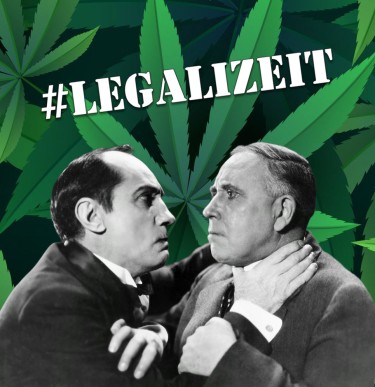
THE DEA AND CONGRESS TRADES BARBS OVER CANNABIS RESCHEDULING!
- SEO Powered Content & PR Distribution. Get Amplified Today.
- PlatoData.Network Vertical Generative Ai. Empower Yourself. Access Here.
- PlatoAiStream. Web3 Intelligence. Knowledge Amplified. Access Here.
- PlatoESG. Carbon, CleanTech, Energy, Environment, Solar, Waste Management. Access Here.
- PlatoHealth. Biotech and Clinical Trials Intelligence. Access Here.
- Source: http://cannabis.net/blog/opinion/is-the-dea-still-worth-it-physician-calls-for-rescheduling-of-cannabis-or-abolish-the-dea
- :has
- :is
- :not
- :where
- a
- About
- abuse
- accepted
- According
- accurate
- acknowledge
- across
- Act
- actions
- actively
- adapt
- addiction
- address
- addressing
- administration
- adopted
- advisor
- affect
- affecting
- again
- agencies
- agency
- aggressive
- Alcohol
- Aligns
- also
- alternative
- america
- Americans
- an
- and
- anymore
- apart
- appears
- applications
- applied
- approach
- approaches
- archaic
- ARE
- argue
- article
- AS
- assess
- Association
- At
- authority
- Autonomy
- availability
- Ban
- Battle
- BE
- become
- been
- begin
- being
- believe
- benefit
- benefiting
- benefits
- Benzinga
- BEST
- Beyond
- bodies
- body
- Budgets
- but
- by
- Calls
- CAN
- cannabis
- cannot
- cases
- Category
- Cause
- causes
- central
- centralized
- Century
- certain
- challenge
- change
- changing
- chief
- choices
- civil
- civil liberties
- classification
- Classify
- clear
- cocaine
- color
- combating
- come
- commitment
- Communities
- Companies
- complexities
- comprehensive
- concept
- concerning
- Conduct
- Congress
- Congressmen
- Consider
- consistently
- consumption
- continue
- continued
- continues
- contributed
- contributing
- control
- controlled
- Core
- Core values
- cornerstone
- Corruption
- Cost
- country
- crack
- created
- Creating
- Crime
- crises
- crisis
- Critics
- crucial
- cultivation
- Currently
- cycle
- dangers
- data
- DEA
- dealing
- decades
- deception
- Decision Making
- decisions
- delve
- Democracy
- democratic
- designated
- desire
- Despite
- Determine
- detrimental
- dictate
- didn
- distribution
- do
- documents
- does
- doesn
- done
- drive
- drug
- Drug Enforcement Administration
- Drug Enforcement Administration (DEA)
- Drugs
- Education
- Effective
- effectiveness
- efforts
- either
- embrace
- emergence
- endorse
- enforcement
- enforcing
- enhanced
- entity
- Epidemic
- Epidemics
- equality
- Era
- established
- Even
- evidence
- evident
- evolving
- examination
- example
- examples
- expansive
- exponentially
- exposed
- extends
- extensive
- factors
- FAIL
- Failed
- fails
- Failure
- failures
- families
- famous
- far
- feelings
- final
- flaws
- flow
- Focus
- For
- forefront
- forever
- forge
- Forward
- Founded
- Freedom
- freedoms
- from
- fuels
- fund
- future
- General
- given
- globe
- goal
- Growing
- grown
- Half
- harm
- harmful
- harms
- Have
- Health
- help
- her
- High
- Highlight
- Highlighted
- hinder
- hindered
- history
- Holland
- However
- HTTPS
- humane
- i
- ideals
- ideologies
- if
- Impact
- imperative
- in
- inadvertently
- incarceration
- inception
- included
- Including
- Increase
- increased
- independent
- indicating
- Indicators
- individual
- individuals
- industry
- inequalities
- influence
- inherent
- input
- instead
- Institute
- intended
- interaction
- interests
- intersection
- into
- introduce
- issues
- IT
- ITS
- jpg
- judge
- just
- Justice
- Key
- known
- landscape
- Law
- law enforcement
- Laws
- leading
- Led
- legalization
- legalized
- legally
- Lessons
- let
- Level
- levels
- Liberty
- like
- little
- Long
- lucrative
- maintain
- make
- Making
- manufacturing
- many
- Maps
- marijuana
- marked
- Marketing
- Mass
- Matters
- means
- measures
- medical
- Medical Applications
- millions
- minority
- misplaced
- Modern
- more
- most
- move
- much
- must
- National
- necessarily
- necessary
- Need
- needs
- New
- newly
- Nixon
- no
- notorious
- now
- of
- offering
- Officially
- often
- on
- ONE
- ongoing
- only
- operate
- operates
- operating
- Opinion
- opioid
- or
- Organized
- Other
- Others
- our
- over
- Oversight
- own
- paradigm
- Parallel
- participation
- past
- path
- People
- perceived
- performance
- personal
- perspective
- Pharmaceutical
- philosophy
- physician
- picture
- placed
- plagued
- plant
- plato
- Plato Data Intelligence
- PlatoData
- played
- Point
- policies
- policy
- politics
- poses
- position
- possession
- possibly
- potential
- Poverty
- power
- powerful
- Prevention
- Prime
- principle
- principles
- Prioritize
- prioritizes
- process
- Production
- profound
- profoundly
- Prohibition
- promotes
- proven
- provided
- public
- public health
- public opinion
- punishment
- question
- Questioned
- Questions
- racist
- radically
- raises
- rapidly
- Rates
- rather
- Read
- recent
- recognize
- recognizing
- Recommendation
- recommended
- record
- Recreational
- reducing
- reduction
- reflect
- regarding
- Regulate
- Regulation
- rehabilitation
- REPEATEDLY
- report
- represent
- represents
- research
- researcher
- reserved
- Resources
- respect
- response
- Reveals
- review
- Richard
- Rise
- Role
- root
- rooted
- rules
- s
- safeguarded
- Safety
- same
- say
- schedule
- scientific
- scope
- scrutiny
- seized
- sentiment
- set
- setting
- several
- shaping
- shift
- should
- signed
- significant
- significantly
- similar
- since
- So
- Social
- societal
- Society
- solution
- spearheaded
- Stage
- stance
- stark
- States
- statistics
- Stem
- Still
- strategies
- stringent
- structure
- studies
- substance
- substantially
- such
- Suggests
- support
- surge
- system
- T
- tactics
- targeted
- targeting
- telling
- than
- that
- The
- The Landscape
- the Law
- the world
- their
- Them
- themselves
- then
- There.
- These
- they
- Third
- this
- threat
- Through
- time
- to
- today
- towards
- track
- trades
- trafficking
- Transparency
- Trends
- truly
- tweet
- Twice
- under
- underscores
- understanding
- United
- United States
- unsustainable
- unwavering
- Uphold
- upholding
- upon
- use
- users
- using
- Values
- various
- very
- vs
- war
- was
- Watch
- Way..
- ways
- we
- WELL
- What
- whether
- which
- while
- WHO
- will
- with
- within
- without
- Won
- world
- worth
- would
- wrote
- years
- zephyrnet








